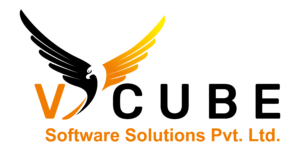Devops Interview Questions Part 1
Interview Questions
1.How do you use Jenkins to clone a Git repository?
- First, we must enter your Jenkins system’s e-mail and user name, then navigate to your job directory and run the “git config” command.
2.What is Ansible’s purpose?
- Ansible is mostly used to manage or deploy applications to remote nodes in IT architecture. Let’s imagine we want to deploy a single application to hundreds of nodes with only one command. Ansible comes into play here, but you’ll need some knowledge of Ansible script to understand or run it.
3.AccordioIs it possible to classify DevOps as an Agile methodology?
- Yes, we can!! The only difference between agile methodology and DevOps is that, agile methodology is implemented only for development section and DevOps implements agility on both development as well as operations section.
4.In Linux, what is the sudo command?
- Sudo (superuser do) is a command-line application for UNIX and Linux systems that allows particular users to run specific system commands at the root (most powerful) level of the system.
5.What is a Jenkins Pipeline, and how does it work?
- Jenkins Pipeline is a collection of plugins that aid in the implementation and integration of continuous delivery.
6.What are the steps for stopping and restarting a Docker container?
- To terminate the container, use the command docker stop containerID>.
docker restart containerID> to restart the container
7.What exactly is Scrum?
- Scrum is a software development methodology that uses iterations and incremental practises to break down complicated software and product development tasks into smaller parts. It takes two weeks to complete each iteration. SPRINTS are the abbreviation for these incremental iterations.
8.In GIT, what does ‘Staging Area’ or ‘Index’ mean?
- A file must be formatted and examined in an intermediate area known as the ‘Staging Area’ or ‘Indexing Area’ before being committed.
- add file name> to git
- OR
- # git add. /
- *This must be taken from the current code directory*/
9.How can I connect all of the tools to Jenkins?
- I need to go to Manage Jenkins and then to Global Tool Configurations, where I need to fill in all of the details like Git URL, Java version, Maven version, Path, and so on.
10.For whatever reason, my application isn’t showing up? How are you going to bring it up?
- Some debugging steps are listed below:
- Verify the network connection
- Verify whether the Web Server is receiving requests from users.
- Examine the logs
- Verify whether services are operating by looking at the process ids.
- Verify whether the Application Server is getting user requests.
11.In git, how can I change the commit message?
- Enter the required message using the following command.
- git commit –amend git commit –amend git commit –amend
12.What backup strategy will you use for Jenkins?
- To replicate it on another server, copy the JENKINS HOME directory and the “jobs” directory.
13.How can I install a docker container to Amazon Web Services (AWS)?
- Amazon offers the Amazon Elastic Container Service (ECS), which we will use to create and configure task definitions and services before launching the apps.
14.What are the responsibilities and roles of a DevOps engineer?
- A DevOps Engineer coordinates with developers, as well as the IT system, in order to manage code releases. They are either developers who have developed an interest in deployment, such as in practise settings, or sysadmins who have converted a passion for scripting and coding into a shift toward the development front, where everyone can improve that test and deployment plans.
15.Is it possible to transfer a Jenkins operation from one server to another?
- Yes, we are capable of doing so. One approach to go about it is as follows:
• By moving the matching jobs folder from one server to another, we can copy Jenkins jobs.
Upskill & Reskill For Your Future With Our Software Courses
Best Institute For Devops in Hyderabad

Quick Links
- Home
- About Us
- Courses
- Contact Us
Other Pages
Contact Info
- 2nd Floor Above Raymond’s Clothing Store KPHB, Phase-1, Kukatpally, Hyderabad
- +91 7675070124, +91 9059456742
- contact@vcubegroup.com
